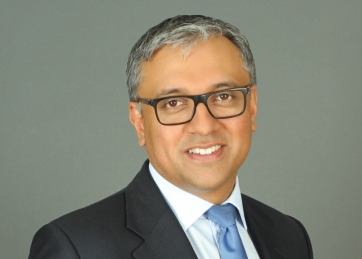Steam rose from the ground like a horror movie, but it was from the hot asphalt playground after a passing shower. I was 17 at a new school, this time in tropical Trinidad. Fayad Ali taught mathematics, but only the sixth form. Students were afraid of him. I not only feared him; I feared his car too. It was always there before me in the mornings. It was a large white saloon with four rectangular headlights. It was almost as if the car was looking at me through those narrowed headlights. Menacing and disapproving at the same time. Then he changed it for a large black saloon. That just made it worse for my nerves.
I didn’t have a good record with Fayad Ali. I was the weakest mathematics student. I scored less than 20% in my end of term exams. I don’t know why he allowed me to stay in his class. Every student he taught passed the external mathematics exam, which made him unique as a teacher. I was a liability. I remember a specific encounter. I said to him that I couldn’t deliver the homework the next day. He said, “I don’t care. You will deliver it.” Then turned away from me. I replied (and goodness knows why), “You can take that attitude, but it doesn’t help me.” He turned around and looked straight at me. He paused, then quietly said, “Okay, the following day.” Later that day, I noticed an older boy walking alongside me. He asked how I was going and if I needed any help with mathematics. That was a gift that I gladly accepted. I became aware of Fayad Ali leaning on a balcony above us, observing the conversation.
Fayad’s methods were unusual. He would write on the blackboard for five minutes at most – only speaking as he wrote. Then, quietly for the rest of the lesson, we would work on the principle he explained. But how did he get such high pass rates? He created an environment. Many students scored in the 90s in the term tests – yet he never once showed favouritism or unkindness – individualism didn’t exist – keeping the class as one. Critically, he had belief in us – it was very subtle but undeniably there. He gave us a past paper exam to do overnight in year two – twice a week. A past paper has 18 questions – under exam conditions, you had three hours to complete any five questions of the 18. He wanted us to answer all 18 questions for homework but get every part of every question right. Next class, at random, we’d have to explain our answers. That was impossible. It would take all night; never mind the other subjects we were studying. It was as if he could read our minds. He said, “If one of you can get part of a question out, then all of you can get the entire paper out.” So, after school, without Fayad Ali, we’d all sit together and figure out the most difficult parts – for those of us that didn’t understand, the student that got the answer would explain it. Those that explained; deepened their knowledge. Those listening learnt how to listen. It was incredible teamwork operating with trust and respect. Over the years, I borrowed this idea of committing everyone to the success of the whole, not the individual. And show that it is the duty of the strongest to help others.
Decades later, I was in Trinidad and visited the school towards the day’s end. I went to Fayad Ali’s room – he was disciplining a student. That was a little awkward. After, we walked along a corridor on the upper level – somehow, I now looked older than him. We stopped by a balcony, and both leaned on it, next to each other, looking outwards. I told him that I did okay in life. Indeed, I am genuinely happy. I thanked him for that. He looked at me and smiled – then turning to stare at the playground - he said, “The lessons were never about Mathematics – they were about life.”
Please subscribe to ensure you don’t miss new content that we post.
Subscribe to receive the latest BDO News and Insights
KEY CONTACTS
Please fill out the following form to access the download.
